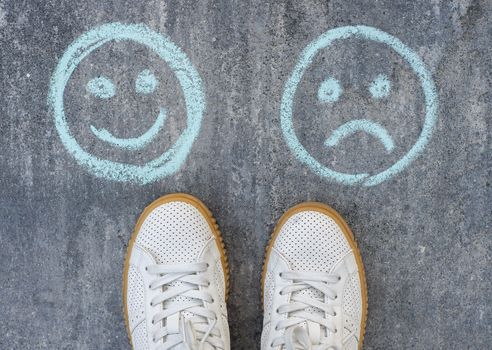Reading time: About 3 minutes
Most of us don’t like criticism, but as writers, we need to learn how to be edited. Here’s a great trick for making negative feedback positive….
When I was writing stories for a national magazine, many years ago, I had one editor who particularly irritated me.
What she did to my stories didn’t bother me. In fact, she was mostly pretty hands-off. Nor was she rude, full of herself or overly assertive — all traits that can get under my skin. Instead, she was sweet and rather quiet. So, what was her big sin?
She was embarrassed about editing. Embarrassed, not embarrassing.
She felt reluctant to suggest changes to my stories. And when she made such suggestions, she did it in an overly deferential way. “Do you think you could consider…” she would say, over the phone, sounding like a Grade 8 student begging a favour from someone in Grade 12. Or, “I’m not sure about this, but do you think you could…”
I can no longer remember the specifics of her edits, but I will never forget her tone: tentative, apologetic and doubtful. This attitude is not the kind anyone wants from an editor. Instead, we want feedback from people who feel confident and sound as though they know exactly what they are doing.
We are seldom lucky enough, however, to work with a perfect editor. Such a person might bat 1,000 on the following list of traits:
- Polite
- Kind
- Insightful
- Thoughtful
- Respectful
- Concerned about the writer’s growth and development
- Someone with an ear for clarity
How many editors like that are around? Not very many! Instead, we have to deal with the less-than-perfect people we encounter. This real-life demand sometimes makes us nervous and distrustful of all editors. But the point of my post today is that we can still learn from them, even the unpleasant ones, no matter how much we may dislike their style.
Have you ever heard of the Dunning-Kruger effect? This psychological term refers to people of low ability (in anything — but today we’re talking specifically about writers) who have the impression that they’re actually pretty good at the task. In short, they cannot recognize how incompetent they are at something.
On the other hand — and much more common among writers — are the people who under-estimate their ability to do something. I’ve written about this in my post on imposter syndrome.
Overall, as human beings, we’re pretty terrible at evaluating our strengths and weaknesses. But here’s the interesting point: Researchers such as David Dunning (Cornell), Steven Heine (UBC) and Larry Gruppen (University of Michigan Medical School) have found that both over- and under-confidence arise from the absence of accurate feedback.
So, when you face feedback from any editor, don’t blame them for their style (as I did), no matter how inept. Instead, focus on what you can learn from the exchange.
It’s always challenging to hear negative feedback. Most often, we try to shut it out. Indeed, our bodies do this automatically — we tense, we breathe more rapidly, we sweat — and after a brief time, our ears stop listening. Instead, we’re more likely to hear a soundtrack in our heads saying something like: “This person is a jerk. Why do I have to listen to this nonsense? I know way more than they do about this story…”
If you’re receiving negative feedback, frame it so it helps you become a better writer in the future. What do I mean by “frame it”? Wharton School of business prof Adam Grant addresses this issue in a terrific podcast episode on “How to Love Criticism.”
At the very end of this fascinating show, he offers an easy and super-smart suggestion. After every criticism (or edit) we receive, we should give ourselves a second score. Our first score is the edit itself, but our second — and far more important score — is how we responded to the edit.
Did we take it with grace and equanimity — no matter how rude or vile the editor might have been? And did we learn something important and measurable that will change our behaviour in the future? If we can answer yes to both questions, we’ve become better writers and likely better people as well.
I love the idea of a second score because it suggests a second chance — a way of improving a situation that might have been uncomfortable or distasteful and still getting value from it.
In short, it’s a good way of making negative feedback positive.
An earlier version of this post first appeared on my blog on June 26/18.
*
Need some help developing a better writing routine? Learn more about my Get It Done program. There is turn-over each month, and priority will go to those who have applied first. You can go directly to the application form and you’ll hear from me within 24 hours.
*
My video podcast last week addressed how to write with a partner. Go here to see the video or read the transcript, and you can also subscribe to my YouTube channel.
*
Have you ever worked at making negative feedback positive? We can all learn from each other, so please, share your thoughts with my readers and me in the “comments” section below. If you comment on today’s post (or any others) by Aug. 31/24, I’ll put you in a draw for a digital copy of my first book, 8 1/2 Steps to Writing Faster, Better. To enter, please scroll down to the comments, directly underneath the “related posts” links, below. Note that you don’t have to join Disqus to post. See here to learn how to post as a guest. It’s easy!


